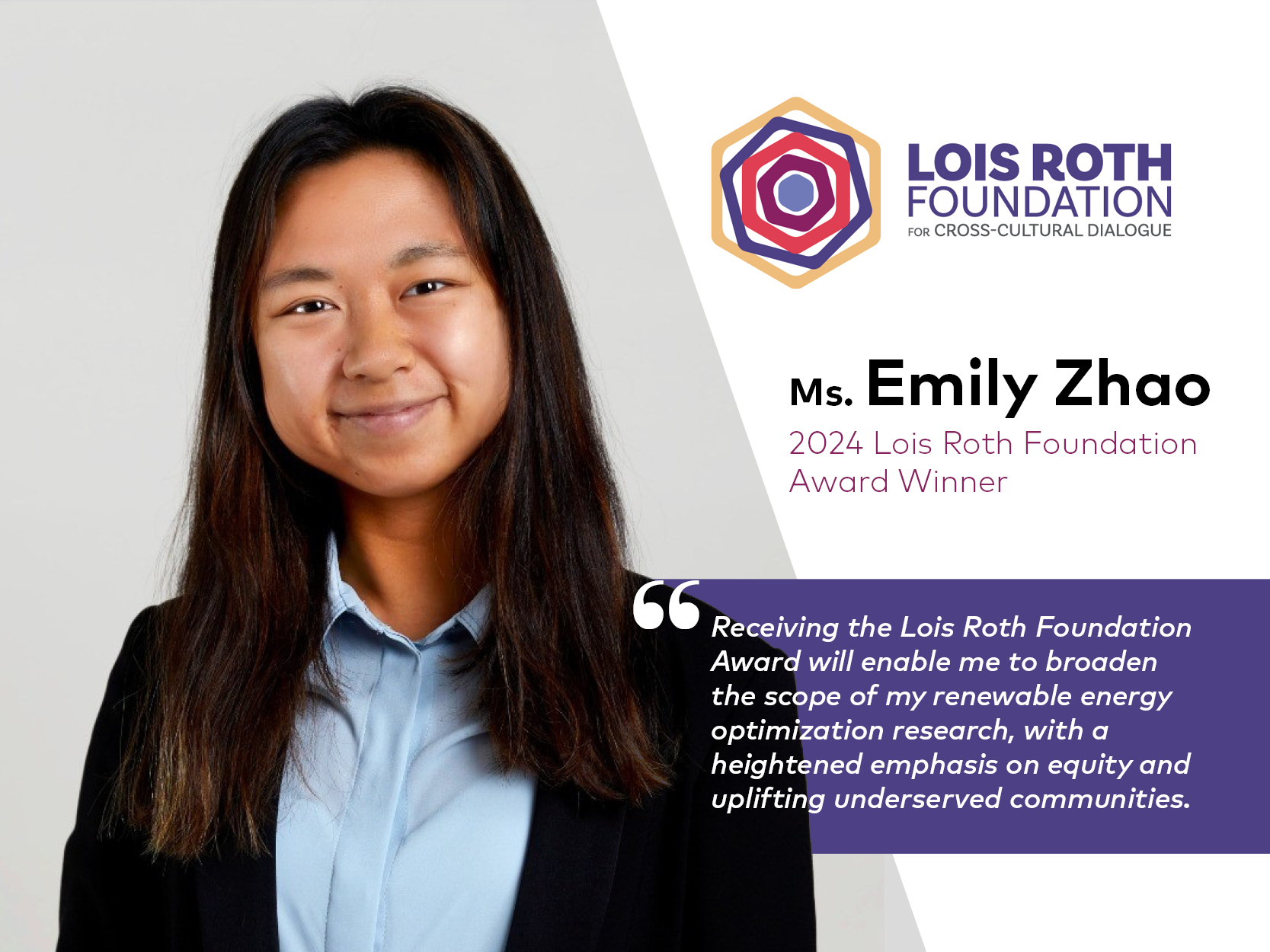Lois Roth Grant Helps Supercharge Fulbright Research

Fulbright Australia is thrilled to announce that Ms. Emily Zhao, Fulbright Postgraduate Scholar, has been awarded the 2024 Lois Roth Foundation award to help further her research on smart home technology and electrical grid resilience in Australia.
Emily is a filmmaker, journalist and an environmental policy student who was awarded a Fulbright Postgraduate Scholarship in 2024. She will undertake research at the University of New South Wales, where she will spend the next 10 months working with experts at the Collaboration on Energy and Environmental Markets (CEEM) to examine and understand the network and household incentives, as well as barriers, to implementing flexible demand technologies in smart home electrification.
Emily has been dedicated to finding data-driven solutions to the world’s renewable energy transition from a young age. Inspired by the US leadership in smart home technologies and Australia’s distributed energy resource implementation, Emily saw an opportunity for the two countries to learn from one another.
By comparing their complementary strengths in renewable energy, she hopes that her research will help to enable accelerated smart electrification, while also increasing grid resilience in the US and worldwide. A commitment to exchanging knowledge for the betterment of one’s community is what Fulbright is all about, and so it is no wonder that Emily has been recognized by Fulbright, and now, by the Lois Roth Foundation.
Each year, the Lois Roth Foundation, in partnership with the Australian-American Fulbright Commission, presents an award to an exceptional US Fulbright student. It is an esteemed award and a generous opportunity for a Fulbright student to expand and enhance their research during their time in Australia and to deepen their cultural experience. The Lois Roth Foundation was founded to commemorate the life of Lois Werba Roth, a Fulbright alumna and Cultural Affairs Officer with the U.S. Foreign Service. Lois Werba Roth embodied the spirit of cultural exchange, having spent decades working in cultural affairs in Iran, Italy, France, and in her Fulbright exchange to Finland.
The purpose of the Foundation is to promote and encourage cross-cultural dialogue, and since 1997, it has been working with the Australian-American Fulbright Commission to award students, particularly in the humanities, arts and social sciences, a generous supplementary grant to support research deemed to have strong potential for wide reception and impact.
During their Fulbright programs, students might identify unexpected opportunities or collaborations that could expand or enhance their research projects and they are invited to submit a proposal to the Foundation for supplemental funding.
The Lois Roth Foundation was particularly impressed with Emily’s proposal to expand her research on Electrification of Grid Resilience to address underserved communities and to engage with indigenous leaders, encouraging a more inclusive conversation about equitable renewable energy policy and sustainable energy use.
“Receiving the Lois Roth Foundation Award will enable me to broaden the scope of my renewable energy optimization research, with a heightened emphasis on equity and uplifting underserved communities.”
The award will support Emily in conducting interviews and workshops with lower income and indigenous communities to gain a richer pool of data that addresses the unique challenges that people from various socioeconomic and cultural backgrounds face in the adoption and implementation of flexible technologies in smart homes.
“Leveraging my previous research experience in environmental justice in the US and qualitative analysis, I aim to highlight the significance of including people from all socioeconomic backgrounds and indigenous people in energy research”
In a field dominated by technical experts, such as technologists and data analysts, Emily’s qualitative insights into the behaviours, needs and values of underserved communities will afford her the insights necessary to develop tailored approaches to renewable energy policy and to ensure that flexible demand technologies are distributed equitably.
“I am profoundly grateful to the foundation, its review committee, and staff for this invaluable opportunity.”
Copyright © 2021 – Fulbright


 Facebook
Facebook Twitter
Twitter Linkedin
Linkedin Instagram
Instagram